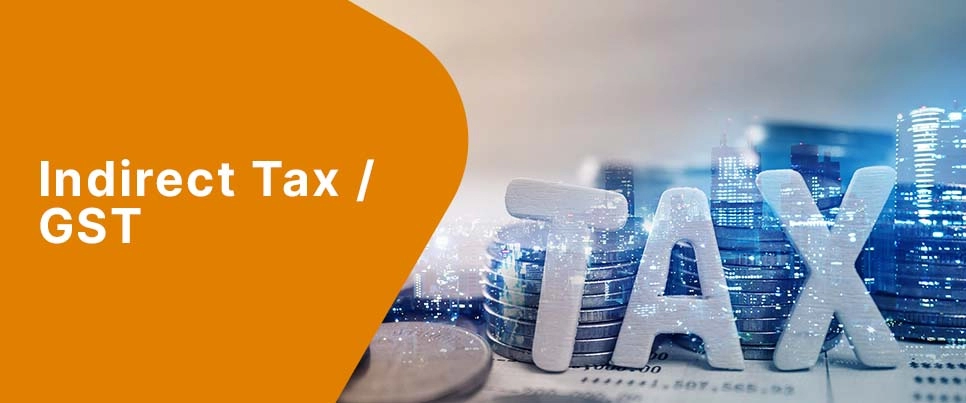
Indirect Tax Definition
An indirect tax system is a strategy for imposing taxes in which the responsibility is not directly imposed on the taxpayer but rather transferred to the consumer through higher prices for goods and services. These taxes are gathered by intermediaries, like manufacturers or retailers, and subsequently remitted to the government.
There are various types of indirect tax in India, which include value-added tax (VAT), sales tax, excise tax, and customs duty. The indirect tax system has a vital function in creating earnings for governments, which are then used to fund public services and promote infrastructure development.
‘My Startup Solution’ specializes in providing comprehensive guidance to businesses and individuals in comprehending these tax schemes, ensuring compliance with regulations, and optimizing financial strategies.
Indirect taxation in India is an integral part of the tax system. These taxes are imposed on the production and distribution of goods and services, and their burden is ultimately borne by the final consumer.
The domain of the indirect tax system in India is complex and has a significant impact on various aspects of the economy and daily life. Given the introduction of the Goods and Services Tax (GST) and the ongoing relevance of customs duties, it is important to stay updated on these tax frameworks.
To comprehend the functioning of GST, let's consider a straightforward example of indirect tax: a shirt manufacturer. In the previous tax system, the manufacturer would be liable to pay excise duty during the production of the shirt, and subsequently, the customer would pay VAT while purchasing the shirt.
However, in the era of GST, the manufacturer is required to pay GST on the raw materials, with the provision of claiming a credit for this tax. Upon the customer's purchase of the shirt, they are obligated to pay GST; nonetheless, they can also avail of the credit for the GST paid on the purchase. Consequently, taxes are solely imposed on the value added at each stage, effectively eliminating the cascading effect.
There are several types of indirect taxes in India, but after the commencement of the GST Act in 2017, all these taxes were bundled under one tax ecosystem, which is GST. Let’s explore various types of indirect tax that existed before GST:
Indirect taxes are a vital component of any modern economy, shaping the way goods and services are taxed.
Recent years have seen a significant transformation in the realm of Indian indirect taxes. The advent of the Goods and Services Tax (GST) regime has ushered in several noteworthy changes that businesses operating in India must be well-versed in. Now let’s explore various development trends in indirect taxes:
My Startup Solution offers various services related to indirect tax, which are as follows:
1. Indirect Tax Advisory: At ‘My Startup Solution’, we pride ourselves on our expert advisory services. We guide companies, firms, and individuals on sales tax, VAT, service tax, and excise duty matters, along with comprehensive planning strategies. Our dedicated team of tax experts ensures you are well-informed and compliant, minimizing risks and maximizing savings.
Our services cover:
Our personalized approach to tax advisory sets us apart. We understand the unique challenges your business faces and tailor our solutions to fit your needs.
2. Indirect Tax Management: Indirect tax management is at the core of what we do. ‘My Startup Solution’ takes care of all the nitty-gritty details, so you can focus on your core business operations. Our services include:
We ensure that your business is always up to date with the latest tax regulations and requirements. Let us handle the paperwork while you stay focused on growth and profitability.
3. Appeals: When tax matters become complex and require representation, ‘My Startup Solution’ is your trusted partner. Our expert team offers representational services, including:
We've successfully resolved numerous tax cases for our clients, ensuring they receive a fair and just outcome.
4. Smooth Transition to GST Regime: The transition to the Goods and Services Tax (GST) regime was a significant change in the Indian tax landscape. ‘My Startup Solution’ specializes in ensuring a seamless shift from the old taxation system to the GST framework. Our services include:
We make the GST transition hassle-free, ensuring that your business remains compliant and stress-free during the shift.
5. GST Compliance: Under the GST regime, compliance is key. My Startup Solution's experts are here to guide you through the complexities of GST. Our services encompass:
With us, you'll always stay on the right side of the law and avoid any unwanted surprises.
‘My Startup Solution’ is not just a service provider; we are your dedicated partner in managing indirect taxes. Our commitment to excellence, tailored solutions, and client-centric approach make us the ideal choice for businesses, firms, and individuals seeking expert guidance on various taxes. When you choose ‘My Startup Solution’, you're choosing a brighter, more tax-efficient future. Contact us at +91-8795224400 for instant redressal of your matter related to Indirect taxes.
An indirect tax system shifts the tax burden from the taxpayer to the consumer by imposing taxes on goods and services, which are collected by intermediaries and then remitted to the government.
In India, common types of indirect taxes include value-added tax (VAT), sales tax, excise tax, and customs duty. These have been streamlined under the Goods and Services Tax (GST) regime.
Under GST, taxes are imposed at each stage of production, with the ability to claim credit for taxes paid earlier in the supply chain, effectively eliminating tax cascading.
'My Startup Solution' provides services including registration and renewals, periodic returns, compliance management, and expert guidance to ensure businesses stay compliant and up to date with tax regulations.






